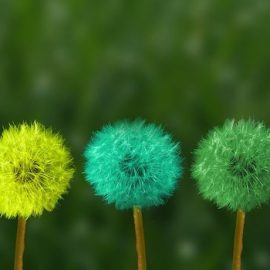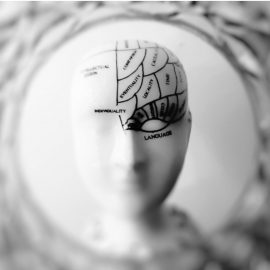

This article is an excerpt from the Shortform book guide to "The Art of Impossible" by Steven Kotler. Shortform has the world's best summaries and analyses of books you should be reading.
Like this article? Sign up for a free trial here .
What is the norepinephrine hormone’s function in the brain? How do you feel if you have too much or not enough? How can you produce more norepinephrine?
The norepinephrine hormone functions primarily to boost your energy and make you feel more alert, according to Steven Kotler. Kotler’s self-help book, The Art of Impossible, outlines the importance of neurochemicals, like norepinephrine, in creating an overall sense of happiness and wellbeing.
Read on to learn more about the function of the norepinephrine hormone, including Kotler’s advice for producing more “happy hormones.”
Neurochemicals Reward Peak Performance Habits
What are neurochemicals? In brief, your nervous system is made up of billions of neurons and neural pathways that transmit chemical information (neurochemicals) from one neuron to another. Kotler explains that these neurochemicals regulate your body and allow you to function. They also drive all of your decisions, behaviors, and habits by creating sensations that motivate you to move toward pleasure and away from pain.
We’ll briefly explain the function of the norepinephrine hormone in your body.
The Norepinephrine Hormone’s Function: Boosting Energy
The norepinephrine hormone functions as a neurochemical that maintains your physical, emotional, and cognitive health: It helps regulate your biorhythms, maintains your organs, and helps protect you from danger by initiating your fight-or-flight stress response. Deficient norepinephrine hormone levels affect how your brain functions, contributing to the depressive phase of bipolar disorders, attention deficit disorders, chronic fatigue, and low blood pressure. On the other hand, elevated norepinephrine levels contribute to the manic phase of bipolar disorders, chronic stress, and anxiety disorders. The most effective way to keep your norepinephrine levels in balance is to manage your mental and physical health and reduce your stress levels.
How to Make More Pleasurable Hormones
According to Kotler, intrinsically motivated goals generate more pleasurable neurochemicals than extrinsically motivated goals. This is because intrinsically motivated goals align with your interests and passions—you choose to pursue these goals and improve your capabilities because they inspire positive emotions and you genuinely enjoy working toward them.
Each time you work toward an intrinsically motivated goal, your feelings of enjoyment trigger a flood of reward neurochemicals (such as norepinephrine) to enter your system, and these hormones function to increase your pleasure. As a result, you associate working toward your goals with pleasurable feelings—and this reinforces your motivation to pursue these goals.
On the other hand, extrinsically motivated goals generally feel less enjoyable to pursue because they don’t align with your interests or inspire positive emotions. As a result, they don’t trigger the necessary reward neurochemicals that drive you to achieve your goal.
Therefore, before you attempt to achieve a seemingly impossible goal, you should ensure that you’re intrinsically motivated to achieve it.

———End of Preview———
Like what you just read? Read the rest of the world's best book summary and analysis of Steven Kotler's "The Art of Impossible" at Shortform .
Here's what you'll find in our full The Art of Impossible summary :
- A look at how some people can achieve seemingly impossible feats
- How to make your dreams more attainable
- A step-by-step process for developing peak performance habits






